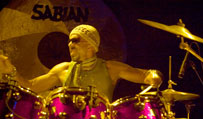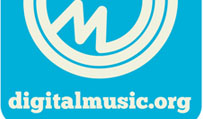Every issue of Music Connection delivers at least one article loaded with expert advice from pros in the know. Our feature interviews, our websites, and Weekly Bulletin, too, regularly deliver useful tips for all musicians. So join us now as we cherry-pick some of the best artistic and career tips that appeared in MC during the past year.
Compiled by Andy Mesecher
SONGWRITING
Come Up With A Great Title: Dianne Warren, who has written more hit songs than anybody writing today, could have replaced the title to her No. 1 song by Toni Braxton, “Un-Break My Heart,” with the title “Please Mend My Heart.” But it wouldn’t have had one-tenth of the commercial impact. Un-Break My Heart is unique and catchy; you’ve never quite heard that thought expressed that way. But I can’t tell you how many students come to me with the most boring, pedestrian titles. A great title is more than half the battle; it tells you what to write, it attracts the listener and gets them hooked. Don’t even write one word without a great title!
—Mark Winkler, songwriter (Dianne Reeves) April
Add Lines And Filler: Even with great songwriters, this is the most common mistake: The guitar or keyboard will play the same lick, chords or rhythm throughout the entire song. This can work perfectly well and might even be a great arrangement choice if another instrument plays a counter-line or rhythm, but usually it just means that the arrangement will be boring. You’ve got to make sure that the song stays interesting, and that means the addition of lines and fills. “American Woman” is a great example of this.
—Bobby Owsinski, producer (the Who) Nov.
Avoid A Weak Chorus: An interesting chorus usually has something different about it from the verse. It may be just a little different, like adding background vocals or another instrument, or an accent or anticipation to the same chord changes and melody (like Stevie Ray Vaughn’s “Crossfire” with the horn hits and guitar fill). Or it can be a lot different with a new set of chord changes or melody combined with the arrangement changes like “Vertigo” by U2, “This Kiss” by Faith Hill or the Eagles’ classic “Hotel California.” Either way, something has to change in the chorus to lift the energy and keep the song memorable.
—Bobby Owsinski, producer (Neil Young) Nov.
Know Your Genre: You have the luxury of writing in more than one format. But, each genre has its own strict rules. For example, you can get away with imperfect rhyming in pop and hip-hop, but in musical theatre and cabaret you can’t. In country you must be very straightforward in what you’re saying, while if you’re writing songs for a rock group a la Coldplay or Kings of Leon you can be more metaphorical and arty.
—Mark Winkler, songwriter (Liza Minelli) April
Focus The Song: Beginner songwriters often have no focus to their songs, which means that the song meanders from chord to chord without a clear distinction between sections. This is usually the result of not honing the song enough and thinking it’s finished way before it’s time. Sometimes there’s really a song in there if you peel it back a bit, but usually the only way to fix it is a major rewrite.
—Bobby Owsinski, producer (the Ramones) Nov.
Rewrite It: Ask any pro what separates him from an amateur and he’ll say it’s his ability to rewrite. But so many of my students think their every word is gold, because it came to them during a moment of “inspiration.” I’m all for inspiration, but “perspiration” is much better. Keep coming back to the lyrics until it’s as close to perfect as you can make it. Remember, it’s not the quantity of the songs you write, but the quality.
—Mark Winkler, songwriter (Dexter Gordon) April
PRACTICING
Have A Rehearsal Agenda: Knowing what you need to accomplish beforehand is the single greatest thing that you can do to make your rehearsal painless and efficient. It doesn’t do anyone any good to go to a rehearsal because “we always practice on Tuesday night” and then just argue about what to do when you get there. You have to have an agenda, and the best time to set it is at the end of the last rehearsal.
—Bobby Owsinski, producer (Willie Nelson) Aug.
Communicate Your Goals To Your Instructor: Most unsuccessful teacher/student pairings are avoidable and can be attributed to a lack of communication and failure to establish a clear agenda. The onus is on you as a student to express your interests in repertoire and/or style. An instructor can prepare specific material focusing on melisimatic phrases (extended note passages using few syllables) and even suggest listening to a particular artist or song that showcases this particular technique––that is critical to your success in this area.
—Stephen J. Gleason, 5 Towns College April













